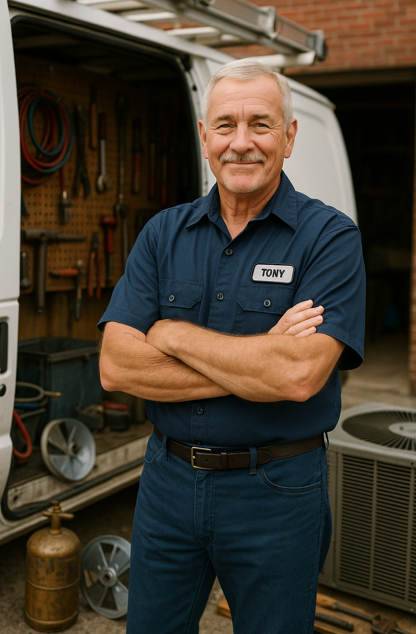If you’re like most folks I meet on the job, you want your home to be cool and efficient—but you don’t want to spend more than you have to. That’s where rebates and incentives for high-efficiency R-32 air conditioners and air handler systems come in. I’ve helped homeowners save anywhere from a few hundred to a couple thousand bucks just by filling out the right forms and choosing the right equipment.
But here’s the catch: the rebate landscape isn’t always easy to navigate. Between federal tax credits, utility company rebates, manufacturer incentives, and local clean energy programs, it’s easy to miss out if you don’t know what to look for.
This guide breaks it down so you can claim every dollar you’re entitled to—no fluff, no sales pitch, just real-world info you can act on.
Why R-32 Systems Qualify for More Incentives
R-32 refrigerant systems are leading the HVAC shift because they check all the boxes for modern efficiency and environmental safety:
-
Low Global Warming Potential (GWP)
-
High SEER2 ratings (typically 14.5 and above)
-
Energy Star certification on many models
Because of this, they qualify for:
-
Federal tax credits
-
State energy rebates
-
Local clean air programs
-
Manufacturer cashback promotions
According to the U.S. Department of Energy, HVAC systems with higher SEER2 ratings and low-GWP refrigerants are getting fast-tracked for rebate programs due to their environmental benefits.
Federal Tax Credits (Up to $2,000!)
As part of the Inflation Reduction Act of 2022, homeowners can now claim up to $2,000 in federal tax credits for installing a high-efficiency air conditioner system.
To qualify:
-
The unit must meet or exceed 15.2 SEER2
-
Must use a qualified low-GWP refrigerant like R-32
-
Installation must be in a primary residence (no rentals)
Steps to Apply:
-
Save your purchase invoice with model numbers
-
Download IRS Form 5695
-
File during tax season with your return
Check full qualification rules here →
Tony’s Tip: Keep all paperwork in a digital folder, and snap a few photos of the unit’s rating plate and installation. You’ll need them.
State-Level Rebates and Programs
Each state has its own clean energy goals and HVAC incentive programs. Some offer instant rebates through your contractor, while others require application forms.
Examples:
-
California TECH Initiative: Up to $3,000 for high-efficiency AC units
-
Mass Save Program: Offers up to $1,250 for qualifying heat pumps and ACs
-
NY Clean Heat: Covers R-32 hybrid systems under decarbonization goals
Check your state’s energy office or search the Database of State Incentives for Renewables & Efficiency (DSIRE) to see what’s available in your zip code.
Utility Company Rebates
Local utility companies are pushing energy efficiency hard. Why? Because lowering grid strain during peak demand saves them money, too.
How to Qualify:
-
Must install a qualifying R-32 system
-
Typically must use a licensed contractor
-
Often requires pre-approval or post-inspection
Examples:
-
Duke Energy (NC/FL): $300–$600 on qualifying ACs
-
Xcel Energy (CO/MN): $500+ for SEER2 15+ systems
-
PG&E (CA): Bonus incentives for low-GWP refrigerants
These rebates often stack with federal and state programs. Use Energy Star’s rebate finder to check by ZIP code.
Manufacturer Rebates and Promotions
Goodman, Daikin, and other major brands often run seasonal promotions for specific product lines—including their R-32 systems.
Look for:
-
Instant dealer discounts
-
Prepaid Visa card offers
-
Mail-in rebates
You’ll find these on brand websites or through authorized dealers like The Furnace Outlet.
Tony’s Tip: Always ask the installer if any current manufacturer incentives are available. These promotions change quarterly and aren’t always advertised publicly.
Bundling Incentives: How to Maximize Savings
Let’s say you’re buying a 3-ton 15.2 SEER2 R-32 system.
-
Federal Tax Credit: $2,000
-
Utility Rebate: $500
-
State Energy Rebate: $1,250
-
Manufacturer Promo: $250
Total Savings: $4,000 off a system that might retail for $7,500 installed. That’s over 50% back in incentives.
Bonus Tip: Financing options with 0% APR may also be available through local utilities, credit unions, or even installers.
Common Mistakes That Kill Your Rebate
-
Choosing a system that doesn’t qualify (wrong SEER2 or refrigerant)
-
Missing application deadlines
-
Losing receipts and documentation
-
Using a non-certified installer
-
Skipping post-installation inspections
Check with AHRI’s Certified Product Directory to make sure your chosen system qualifies before you install it.
FAQs About R-32 HVAC Rebates
Q: Can I combine a furnace and AC rebate? A: Yes, but each component must meet program requirements. Often, full system bundles offer more incentive.
Q: Are rebates available for new construction? A: Usually no. Most rebates apply to retrofits or replacement systems in existing homes.
Q: Is there a limit to how many rebates I can claim? A: Federal credits have annual limits. Local programs vary, but yes—you can often combine multiple.
Q: Do ductless mini-splits with R-32 qualify? A: Absolutely. As long as they meet efficiency and safety standards.
Final Thoughts from Tony
If you’re serious about saving money while improving your home’s comfort, there’s never been a better time to switch to an R-32 AC system. The government wants you to upgrade. Your utility provider wants you to upgrade. And with the right approach, they’ll help pay for it.
Just don’t leave free money on the table. Take 30 minutes, gather your paperwork, and stack those rebates.
And if you’re not sure which systems qualify, you can always reach out to us at The Furnace Outlet. We’ll steer you straight.
🛠️ Stay cool out there. You’ve got options—and you’ve got me, — Tony 🛠️







